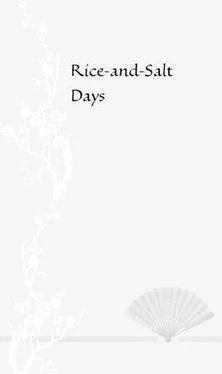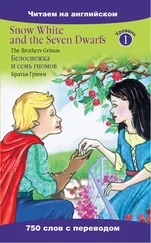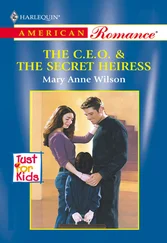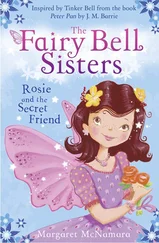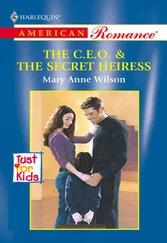Lisa See - Snow Flower And The Secret Fan
Здесь есть возможность читать онлайн «Lisa See - Snow Flower And The Secret Fan» весь текст электронной книги совершенно бесплатно (целиком полную версию без сокращений). В некоторых случаях можно слушать аудио, скачать через торрент в формате fb2 и присутствует краткое содержание. Жанр: Старинная литература, на английском языке. Описание произведения, (предисловие) а так же отзывы посетителей доступны на портале библиотеки ЛибКат.
- Название:Snow Flower And The Secret Fan
- Автор:
- Жанр:
- Год:неизвестен
- ISBN:нет данных
- Рейтинг книги:3 / 5. Голосов: 1
-
Избранное:Добавить в избранное
- Отзывы:
-
Ваша оценка:
- 60
- 1
- 2
- 3
- 4
- 5
Snow Flower And The Secret Fan: краткое содержание, описание и аннотация
Предлагаем к чтению аннотацию, описание, краткое содержание или предисловие (зависит от того, что написал сам автор книги «Snow Flower And The Secret Fan»). Если вы не нашли необходимую информацию о книге — напишите в комментариях, мы постараемся отыскать её.
Snow Flower And The Secret Fan — читать онлайн бесплатно полную книгу (весь текст) целиком
Ниже представлен текст книги, разбитый по страницам. Система сохранения места последней прочитанной страницы, позволяет с удобством читать онлайн бесплатно книгу «Snow Flower And The Secret Fan», без необходимости каждый раз заново искать на чём Вы остановились. Поставьте закладку, и сможете в любой момент перейти на страницу, на которой закончили чтение.
Интервал:
Закладка:
My feet hurt as they had during my footbinding and pain shot up my legs with each step. But I was lucky in my suffering. I saw women my age and younger—women in their rice-and-salt years—whose feet had broken under the stress of walking so far or had fractured into bits against a rock. From the ankle up they were unhurt, but they were completely crippled. They lay there, not moving, only crying, waiting to die from thirst, starvation, or cold. But we kept going, never looking back, burying shame in our empty hearts, shutting out the sounds of agony and sorrow as best we could.
When the second night fell and our world grew black, despondency enveloped all of us. Belongings were abandoned. People got separated from their families. Husbands searched for wives. Mothers called out for their children. It was late fall, the season when footbinding begins, so many times we encountered young girls whose bones had recently broken and who were now left behind, as had food, extra clothes, water, traveling altars, dowry gifts, and family treasures. We also saw little boys—third, fourth, or fifth sons—who begged anyone who passed for help. But how can you help others when you have to keep moving while holding tightly to your favorite child’s hand with your husband’s hand tightly grasping yours? If you are afraid for your life, you don’t think about others. You think only about the people you love, and even that may not be enough.
We had no bells to tell us what time it was, but it was dark and we were beyond tired. We had been walking now for more than thirty-six hours—without rest, without food, and with only the occasional sip of water. We began to hear horrible long screams. We could not imagine what they were. The temperature dropped. Around us leaves and branches collected frost. Snow Flower wore her indigo cotton and I was in my silk. Neither of our outfits would be much protection against what was to come. Beneath our shoes, the rocks became slippery. I was sure my feet were bleeding, because they felt oddly warm. Still, we kept walking. The butcher’s mother staggered between us. She was a weak old woman, but her rat personality had a will to live.
The path narrowed to a third of a meter. To our right, the mountain—I cannot call it a hill any longer—rose so steeply it touched our shoulders as we trudged single file. To our left, the mountain fell away into blackness. I could not see what was down there. But on the trail ahead of me and behind me were many bound-footed women. We were like flowers in a gale. Our feet were not our only weakness. Our leg muscles—which had never worked this hard—ached, quivered, shook, and spasmed.
For an hour, we followed a family—father, mother, and three children—until the woman slipped on a rock and fell into that pit of darkness below us. Her scream was loud and long, until it abruptly ended. We’d been hearing this kind of death all night. From there on, I passed one hand over the other, grabbing at weeds, allowing my hands to be torn by the jagged rocks that poked from the cliff to my right. I would do anything to keep from becoming another scream in the night.
We came to a sheltered bowl. The mountains were silhouetted against the sky around us. Small fires burned. We were up high, yet with this dip in the landscape the Taipings could not see the glow from the fires, or at least we hoped they couldn’t. We edged our way down into the bowl.
Perhaps because I was without my family I saw only children’s faces in the firelight. Their eyes had a glazed and empty look. Perhaps they had lost a grandmother or a grandfather. Perhaps they had lost a mother or a sister. They were all frightened. No one should see a child in that condition.
We stopped when Snow Flower recognized three families from Jintian who had found a relatively sheltered spot under a large tree. They saw the butcher had a sack of rice on his back and scooted over to make room for us by the fire. Once I sat with my feet and hands close to the flames, they began to burn, not from the heat but from the frozen bones and flesh beginning to thaw.
Snow Flower and I rubbed her children’s hands. They wept quietly, even the eldest boy. We pushed the three children together and covered them with a quilt. Snow Flower and I nestled together under another, while the mother-in-law took an entire quilt for herself. The last was for the butcher. He waved at us dismissively. He pulled one of the men from Jintian aside, whispered a few words, and nodded. He knelt down beside Snow Flower.
“I’m going to look for more firewood,” he announced.
Snow Flower gripped his arm. “Don’t go! Don’t leave us.”
“Without a fire, we won’t last the night,” he said. “Don’t you feel it? Snow is coming.” He gently pried Snow Flower’s fingers from his arm. “Our neighbors will look after you while I’m gone. Do not be afraid. And”—here he lowered his voice—”if you have to, push these people away from the fire. Make room for yourself and your friend. You can do it.”
And I thought, Maybe she can’t, but I couldn’t allow myself to die up here without my family.
As tired as we all were, we were too scared to sleep or even close our eyes. And we were all hungry and thirsty. In our little circle around the fire, the women—who I learned later were post-marriage sworn sisters—distracted us from our fears by singing a story. It’s a funny thing that although my mother-in-law was extremely literate in nu shu— perhaps because she was so familiar with such a variety of characters—singing and chanting had not been very important to her. She was more interested in composing a perfect letter or a lovely poem than in the entertaining or consoling qualities of a song. Because of this, my sisters-in-law and I had forsaken many of the old chants we had grown up with. In any event, the tale sung that night was familiar but one I hadn’t heard since childhood. It told of the Yao people, their first home, and their brave fight for independence.
“We are Yao people,” Lotus, a woman perhaps ten years older than I, began. “In antiquity, Gao Xin, a kind and benevolent Han emperor, was under attack by an evil and ambitious general. Panhu—a mangy, unwanted dog—heard of the emperor’s problems and challenged the general to battle. He won and was given the hand of one of the emperor’s daughters. Panhu was happy, but his betrothed was embarrassed. She did not want to marry a dog. Still, her duty was clear, so she and Panhu fled into the mountains, where she gave birth to twelve children, the very first Yao people. When they grew up, they built a town called Qianjiadong—the Thousand-Family Grotto.”
This first part of the story finished, another woman, Willow, took up the chant. Next to me, Snow Flower shivered. Was she remembering our daughter days, when we listened to Elder Sister and her sworn sisters or Mama and Aunt as they sang this story of our beginnings?
“Could there be a place of so much water and such good land?” Willow asked in the song. “Could it be safer from intruders when it was hidden from sight, the only access through a cavernous tunnel? Qianjiadong held much magic for the Yao people. But such a paradise cannot remain undisturbed forever.”
I began to hear verses sung by women sitting around other fires in the bowl. The men should have stopped our chanting, for certainly the rebels could hear us. But the purity of the women’s voices gave us all strength and courage.
Willow continued. “Many generations later, in the Yuan dynasty, someone from the local government, bold in his explorations, walked through the tunnel and found the Yao people. Everyone was dressed resplendently. Everyone was fat from the wealth of the land. Hearing of this tantalizing place, the emperor—greedy and without gratitude—demanded high taxes from the Yao people.”
Читать дальшеИнтервал:
Закладка:
Похожие книги на «Snow Flower And The Secret Fan»
Представляем Вашему вниманию похожие книги на «Snow Flower And The Secret Fan» списком для выбора. Мы отобрали схожую по названию и смыслу литературу в надежде предоставить читателям больше вариантов отыскать новые, интересные, ещё непрочитанные произведения.
Обсуждение, отзывы о книге «Snow Flower And The Secret Fan» и просто собственные мнения читателей. Оставьте ваши комментарии, напишите, что Вы думаете о произведении, его смысле или главных героях. Укажите что конкретно понравилось, а что нет, и почему Вы так считаете.
